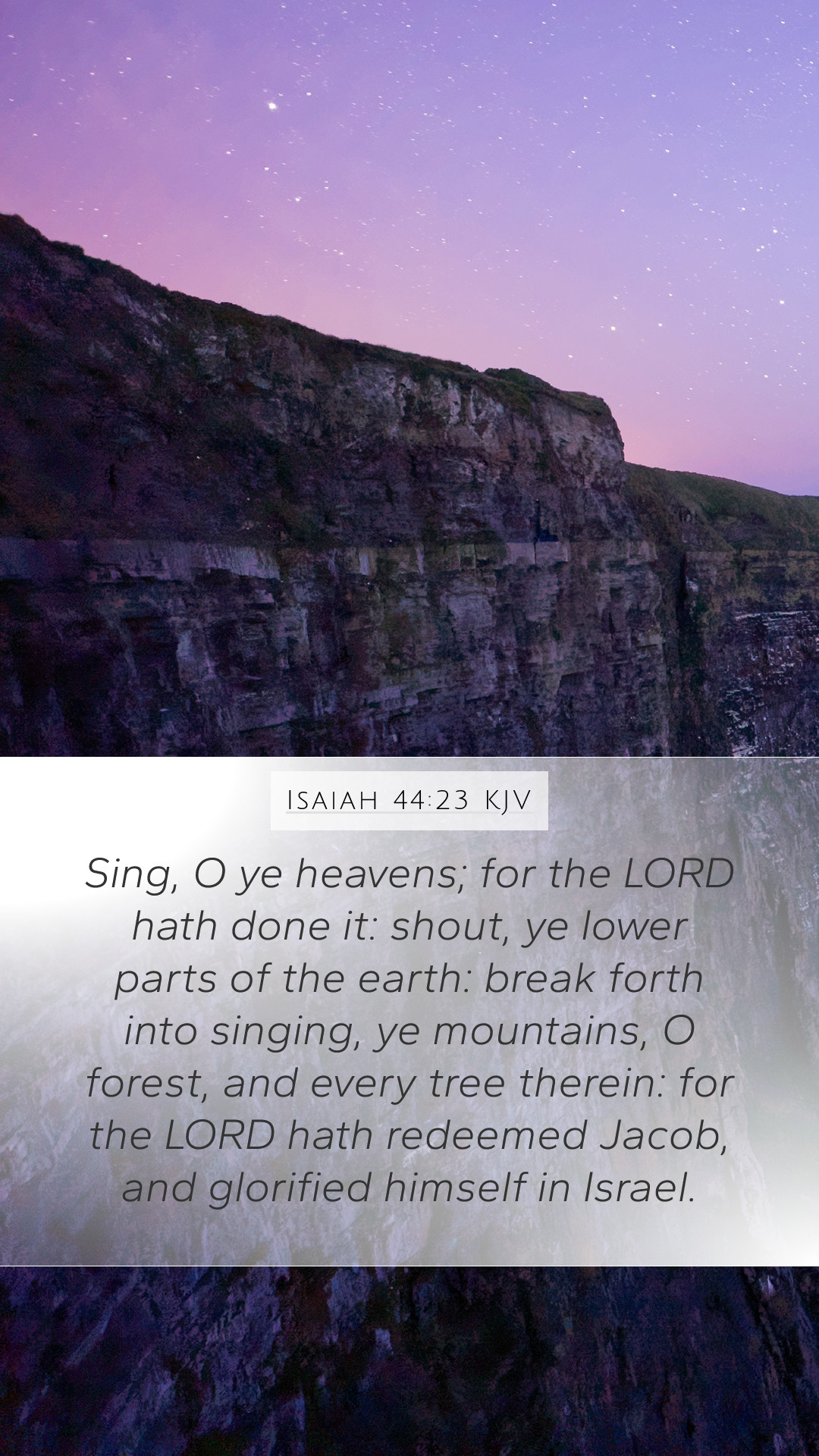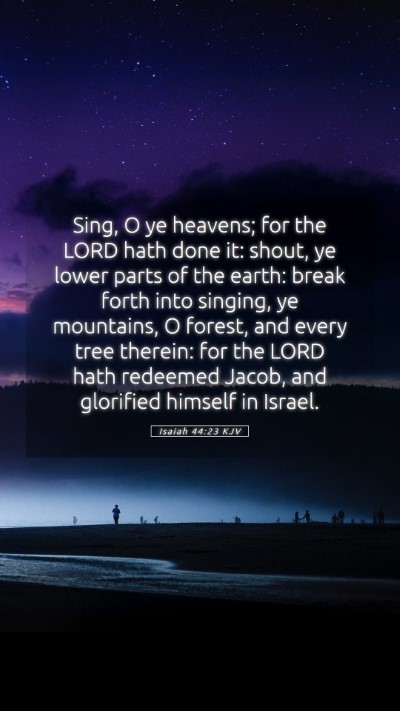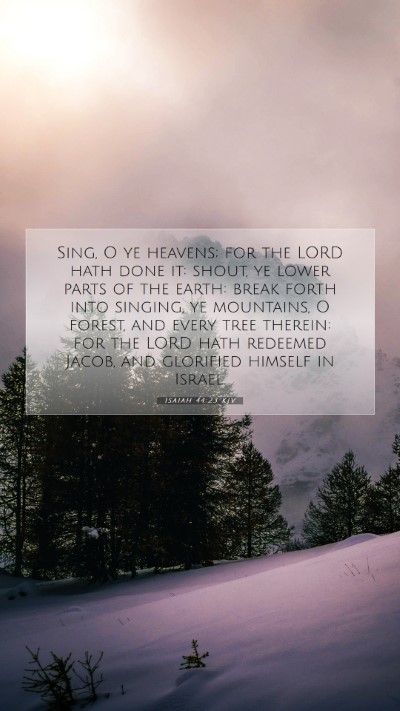Understanding Isaiah 44:23
Isaiah 44:23 states, "Sing, O ye heavens; for the LORD hath done it: shout, ye lower parts of the earth: break forth into singing, ye mountains, O forest, and every tree therein: for the LORD hath redeemed Jacob, and glorified himself in Israel."
Bible verse meanings
This verse serves as an invitation for all of creation to rejoice in the redemptive acts of God. It draws attention to a cosmic celebration, highlighting that God's works extend beyond humanity to include nature itself. According to Albert Barnes, the expressions here indicate the immense joy that should be felt in response to God's deliverance of His people.
Bible verse interpretations
Interpretatively, this verse emblemizes the culmination of God's promise to restore Israel. As Matthew Henry mentions, the call to sing and shout reflects a response to God's miraculous interventions, particularly emphasizing that God not only redeems His people but also receives glory through them.
Bible verse understanding
To grasp the understanding of this verse, one must appreciate the context of Israel's previous struggles. As Adam Clarke notes, the verse comes in a period of despair, reminding the Israelites of God’s past faithfulness and the assurance of future redemption, thereby instilling hope and joy.
- Creation's Response: The heavens, earth, and all of nature are called to reflect God's glory through song.
- Divine Redemption: Emphasizes God's role as a redeemer, particularly in the context of Israel's history.
- Glory to God: The ultimate purpose of God's works is to bring glory to His name.
Bible verse explanations
This verse serves as a celebratory proclamation of God's redeeming work. The invitation to the heavens to sing signifies a universal response to God's providence. It conveys a deep theological truth: that God is actively involved in the history of His people and the world.
Scripture analysis
The analysis of this verse reveals layers of meaning that are relevant for both personal and communal worship. The phrase “for the LORD hath done it” underscores God’s sovereignty and initiative in bringing about redemption.
Biblical exegesis
In exegetical studies, Isaiah 44:23 highlights the joy of salvation as both an individual and communal experience. The command to “sing” reflects the natural human response to divine grace, an imperative that transcends time and culture.
Bible study insights
For those engaging in Bible study, this verse illustrates the importance of remembrance of God’s past deeds as a source of hope. It creates an opportunity to discuss how God’s work in the Old Testament points to the larger narrative of redemption fulfilled in the New Testament.
- Group Study Ideas: Analyze how other Biblical texts reflect God's redemptive work.
- Practical Application: Discuss how to express gratitude for God's interventions in our own lives.
Cross References
- Psalms 98:4-9: A call to all of creation to praise God.
- Isaiah 51:11: The redeemed of the LORD shall return and joy shall be upon their heads.
- Luke 15:10: Joy in heaven over one sinner who repents.


